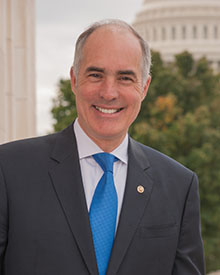Training Centers on Complex Communication Supports
Training Centers on Complex Communication Supports
Synopsis:
This bill, known as the Access to Free Speech for All Act (AFSFA), would create grants funding as many as five national resource centers on augmentative and alternative communication (AAC). It defines AAC as “a technology, a service or another support used to supplement or replace speech or sign language for an individual who is unable to produce or be understood using spoken or signed language.” This definition covers professionals who support individuals with complex communication needs and assistive technology ranging from binders full of pictures to eye-tracking screen keyboards. AFSFA would require the resource centers to be spread around the country and have a significant presence of individuals who use AAC in leadership and advisory roles. Professionals such as speech-language pathologists say AFSFA would address an urgent national need for more awareness, training and resources for AAC. In Delaware, the Department of Education has identified a critical shortage of educators specializing in speech and language therapy – as well as specialists in related fields such as autism and severe intellectual disabilities.
Supporters:
Sens. Casey (D-Pa.), Hassan (D-N.H.), Leahy (D-Vt.); Association of University Centers on Disabilities, Autistic Self Advocacy Network, Coleman Institute for Cognitive Disabilities.
Opponents:
None reported yet.
Links to Additional Resources:
- S. 1836
- Actions Overview
- American Speech-Language-Hearing Association information about AAC
- Communication Bill of Rights – National Joint Committee for the Communication Needs of Persons with Severe Disabilities
- Journal of Augmentative and Alternative Communication: “Putting people first: Re-thinking the role of technology in augmentative and alternative communication intervention”
- Communication Matrix: “Resources to support children with complex communication needs in medical settings”
- Delaware Department of Education high-needs subject areas
This entry was posted in and tagged 1836, AAC, Assistive Technology, augmentative and alternative communication, Bob Casey, CCN, complex communication needs, congress, nonverbal, resource centers, s 1836, s1836, Sen. Bob Casey, Senator Bob Casey, SLP, speech-language pathologist, U.S. Congress, US Congress.

